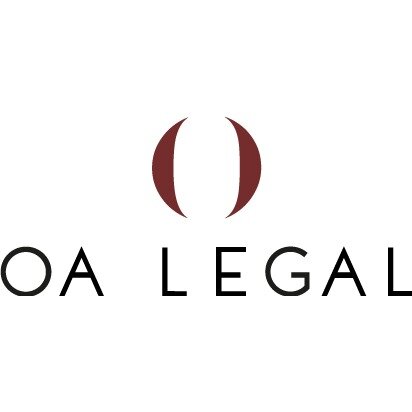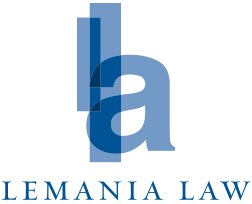Best Employment Benefits & Executive Compensation Lawyers in Geneva
Share your needs with us, get contacted by law firms.
Free. Takes 2 min.
List of the best lawyers in Geneva, Switzerland
About Employment Benefits & Executive Compensation Law in Geneva, Switzerland
Employment Benefits & Executive Compensation law in Geneva is characterized by a mixture of Swiss federal laws and local regulations. This field governs the various benefits and compensation structures provided to employees and executives, including salary, bonuses, pensions, stock options, and fringe benefits. Geneva, known for its strong financial sector and multinational presence, follows Switzerland’s commitment to protecting employee rights while maintaining flexibility for employers. The laws are designed to enhance employee welfare while balancing company resources. Local regulations also consider international standards due to the diverse workforce and global companies headquartered there.
Why You May Need a Lawyer
There are several situations where individuals may need legal assistance in the realm of Employment Benefits & Executive Compensation in Geneva:
- If you are negotiating your employment contract, especially when you’re dealing with high-value compensation packages or complex benefit schemes.
- If your employer changes the terms of your compensation or benefits and you need clarity on the implications.
- In cases where you suspect that your rights related to benefits or compensation have been violated.
- If there are disputes over pension entitlements or stock option agreements.
- For multinational companies, understanding the interplay between Swiss laws and the laws of other countries regarding employee benefits and taxes is crucial.
Local Laws Overview
The following are some of the key aspects of local laws relevant to Employment Benefits & Executive Compensation in Geneva:
- The Swiss Code of Obligations provides the foundation for employment contracts, including compensation details.
- The Federal Act on Old-Age, Survivors, and Invalidity Insurance regulates pension schemes alongside the Mandatory Occupational Pension Plans (BVG/LPP).
- Severance pay and other end-of-employment benefits are not mandatory unless specified in the employment contract or planning documentation.
- Taxation of compensation and benefits such as stock options requires careful assessment due to Switzerland’s complex tax landscape.
- International employees need to consider how the laws interplay with their home country's compensation and tax regulations.
Frequently Asked Questions
What is included in executive compensation packages in Geneva?
Executive compensation in Geneva typically includes a base salary, bonuses, equity incentives like stock options, pension contributions, and often other benefits such as company cars and housing allowances.
Are there statutory requirements for minimum employee benefits?
While there are no statutory minimum requirements for benefits beyond social security contributions, many companies offer additional perks to attract talent.
How are stock options for employees taxed in Switzerland?
Stock options are taxed at both the cantonal and federal levels, primarily at the time when the employee exercises the options. Tax implications depend on the value increase between the grant and exercise dates.
Can an employer change the terms of an employment contract including compensation?
Yes, but any changes to the contract must be mutual. If an employer wishes to change terms, they must usually seek the employee's agreement or face potential disputes.
What happens to my benefits if my employment is terminated?
It depends on the contract. Generally, benefits cease with employment unless specific arrangements (such as for pensions) have been stipulated.
Am I entitled to severance pay?
Severance pay is not mandatory in Switzerland unless it is a part of the employment contract or collective bargaining agreement.
How do pension schemes work in Geneva?
Pensions in Geneva are provided through a three-pillar system: state pension, occupational pension, and private pension provisions.
I am an expatriate; are there any special considerations for my compensation?
Expatriates may face additional complexities such as double taxation treaties, social security contributions in different countries, and currency exchange impacts.
How does maternity leave affect employment benefits?
Maternity leave in Switzerland ensures continued salary payments for a period, and employment benefits usually continue as per company policy or employment agreements.
What should I do if I suspect my employer is not complying with compensation laws?
It is advisable to seek legal advice to understand your rights and determine the best course of action, which may include filing a complaint with labor authorities.
Additional Resources
For more information or assistance with Employment Benefits & Executive Compensation in Geneva, consider the following resources:
- The Swiss Bar Association (SBA) for legal guidance and lawyer referrals
- Swiss Federal Social Insurance Office for information on social security benefits
- The Geneva Labor Inspectorate, which offers resources on employment standards
- Chambers of commerce in Geneva for networking and business advice
- Pension Fund Supervisory Commission for insights on pension schemes
Next Steps
If you find yourself in need of legal assistance in Employment Benefits & Executive Compensation, consider the following steps:
- Consult with a lawyer specializing in employment or compensation law. The Swiss Bar Association can help you find a qualified professional.
- Gather and review all relevant documents, including employment contracts, compensation plans, and correspondence related to your benefits.
- Contact your local labor office for preliminary guidance or to obtain information on your rights as an employee.
- Consider financial and tax advisors if your situation involves complex compensation structures or international issues.
Lawzana helps you find the best lawyers and law firms in Geneva through a curated and pre-screened list of qualified legal professionals. Our platform offers rankings and detailed profiles of attorneys and law firms, allowing you to compare based on practice areas, including Employment Benefits & Executive Compensation, experience, and client feedback.
Each profile includes a description of the firm's areas of practice, client reviews, team members and partners, year of establishment, spoken languages, office locations, contact information, social media presence, and any published articles or resources. Most firms on our platform speak English and are experienced in both local and international legal matters.
Get a quote from top-rated law firms in Geneva, Switzerland — quickly, securely, and without unnecessary hassle.
Disclaimer:
The information provided on this page is for general informational purposes only and does not constitute legal advice. While we strive to ensure the accuracy and relevance of the content, legal information may change over time, and interpretations of the law can vary. You should always consult with a qualified legal professional for advice specific to your situation.
We disclaim all liability for actions taken or not taken based on the content of this page. If you believe any information is incorrect or outdated, please contact us, and we will review and update it where appropriate.
















